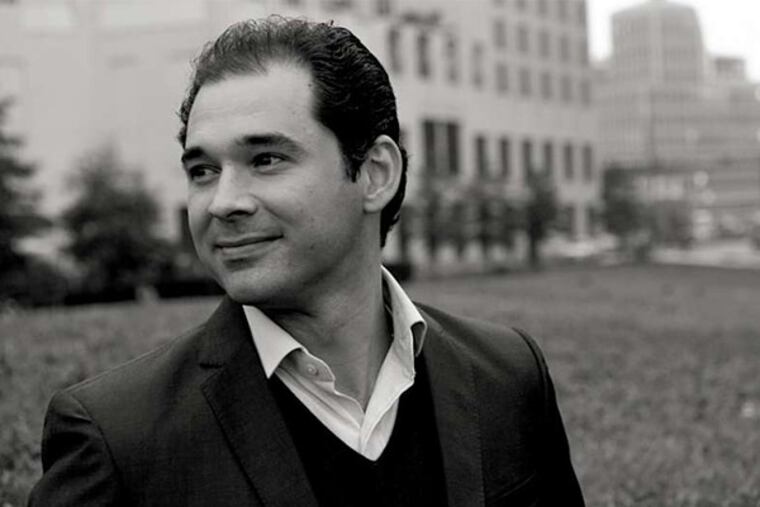Sokhiev leads the Orchestra
In one of the more significant Philadelphia Orchestra debuts since Yannick Nézet-Séguin, Tugan Sokhiev led fresh-minted performances in what could have felt like the ultimate rerun: Tchaikovsky's Violin Concerto (which began the current season) and the Mussorgsky/Ravel Pictures From an Exhibition Thursday at the Kimmel Center.

In one of the more significant Philadelphia Orchestra debuts since Yannick Nézet-Séguin, Tugan Sokhiev led fresh-minted performances in what could have felt like the ultimate rerun: Tchaikovsky's Violin Concerto (which began the current season) and the Mussorgsky/Ravel Pictures From an Exhibition Thursday at the Kimmel Center.
The Tchaikovsky performance was safer, more conventional, and less consistently charismatic than Anne-Sophie Mutter's, which opened the current season. In fact, violinist Vadim Gluzman, also making his debut, didn't settle in until the second movement. Prior to that, the brilliant and the commonplace, the cursory and the deeply committed were often cheek by jowl. His tone was brittle and grainy one minute, appropriately soaring and songful the next. At times he fused with the orchestra with cumulative force, and then threatened to go out of sync. Although the performance summoned requisite excitement in the final movement, this was not a talent operating at full force. One looks forward to his return engagement.
No doubt Sokhiev was written off in some quarters: Arriving at the helm of the Welsh National Opera a decade ago, the Ossetian-born, Russian-trained conductor left before his contract was finished amid reports he was in over his head. Now, he's a considerable success with two European orchestras (Toulouse and DSO Berlin), and was just appointed to the in-distress Bolshoi Theater, the sort of rescue job on which young conductors make their careers.
In his Mussorgsky with the Philadelphia Orchestra, he handled himself with great technical confidence in a piece loaded with land mines. His performance explored that piece's layers with a particularly fine ear for timbre. Sokhiev projected the physical movement Mussorgsky drew from the paintings that inspired the individual episodes, but also gave Ravel's sonorities great specificity, guided by the psychological amplification this later French composer gave to the Russian original.
Though "The Great Gate of Kiev" resorted to blatant orchestral showmanship, much else was given a personal, original stamp, especially "Catacombs," when the "Promenade" theme, representing the composer observing the exhibition, enters that murky world of the dead - characterized by Sokhiev with an ever-darkening sound that conveyed a free fall into nothingness. Some conductors speak through phrasing. Others respond most to musical architecture. With the Philadelphia Orchestra in top form, quality of sound was Sokhiev's first language.